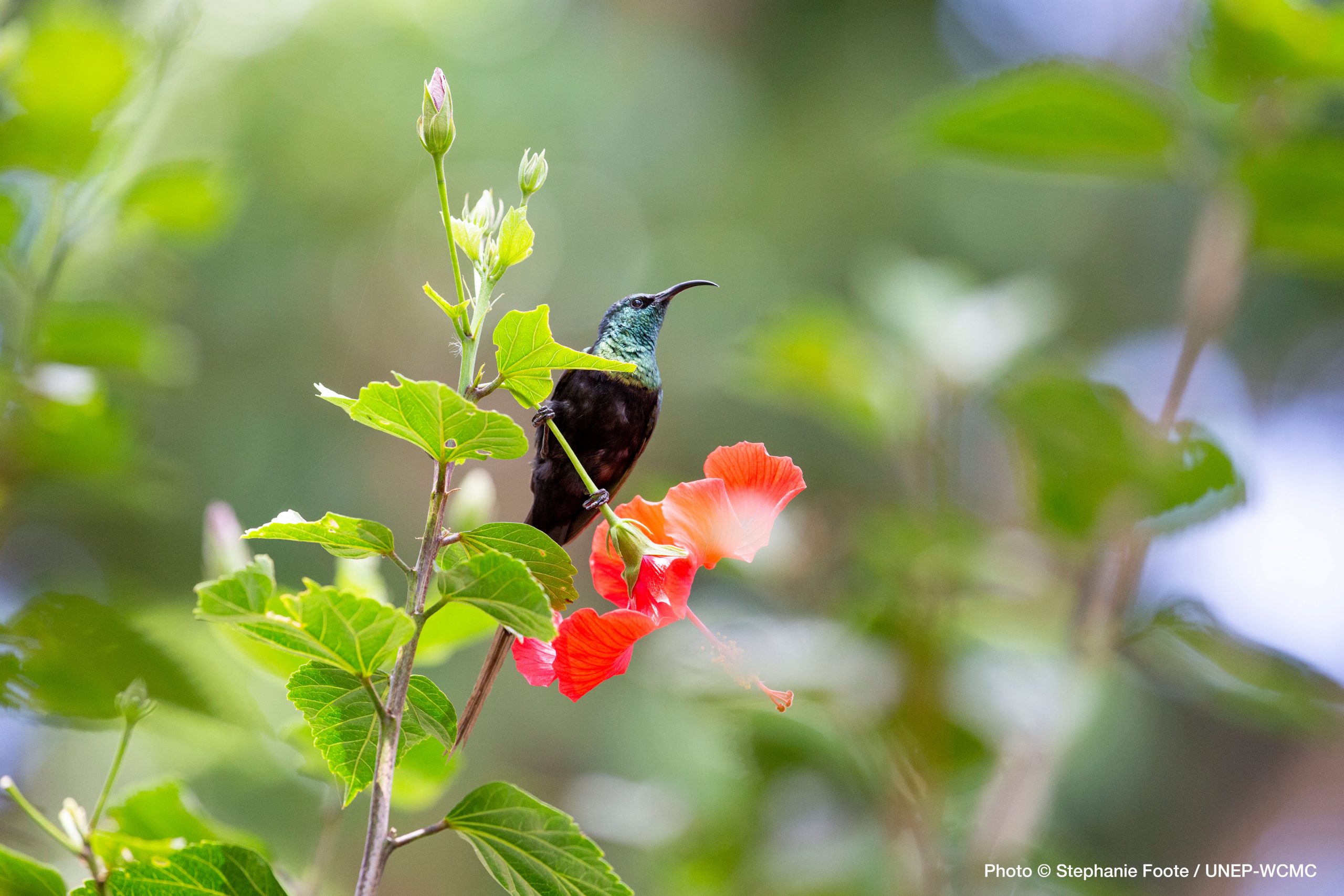News
Health and biodiversity: shared learning in a time of crisis

News | Jun 2020
by Hilary Allison, Head of Ecosystem Assessment and Policy Support at UNEP-WCMC and Katherine Jones, NIHR Network Support Fellow for the Cochrane Mental Health and Neuroscience Network.
The relationship between our health and the environment around us has been brought into shudderingly sharp focus by the global spread of coronavirus.
A tragedy of continuing human vulnerability to disease is now clear for all to see despite all our medical and technological advances. What is perhaps less clear is the detail of the complex umbilical connection between the critically degraded state of biodiversity, (ecosystems and the species within them), and the health of human beings.
Now, zoonotic disease and human health are headline concerns. The United Nations Environment Programme (UNEP) is undertaking a rapid environmental assessment of coronavirus and zoonotic disease to be published next month. This will explore key drivers behind the emergence and rapid spread of zoonotic diseases such as intensification of farming and dietary demand for protein, changes in food supply chains, increased exploitation of wildlife, land-use change, habitat destruction and encroachment, travel and transportation, and climate change. All these are combining to create a lethal cocktail of heightened disease risk.
Complex questions and evidence gaps
While knowledge of coronavirus and zoonotic disease is rapidly advancing and evolving, many gaps in our knowledge remain. Environmental and healthcare decision-makers need answers to a wide variety of complex questions, including:
- What actions to protect, restore and enhance natural ecosystems will also decrease the chance of zoonoses spread and human infections?
- How do links (or absence of links) to ecosystem management interventions affect the success of healthcare interventions for zoonotic disease?
- Under what circumstances can nature-based solutions, a crucial part of our climate change adaptation response, also be beneficial health interventions or can they be detrimental to human health?
These questions show that this is a field ripe for global and interdisciplinary collaboration. But research on the many pieces in this complex knowledge jigsaw of human health and ecosystem interactions has often been addressed separately by many different specialist disciplines in human health and environmental science. It is only in the last decade that experts have begun to collaborate in piecing together the bigger picture through emerging initiatives such as the EcoHealth Alliance.
The knowledge framework
Bringing together expertise from health and ecological disciplines will help to tackle shared challenges and begin to answer outstanding questions. To do so will require an interdisciplinary and integrated knowledge framework.
Cochrane is widely recognised as a source of evidence to inform health decisions. The health sector’s production of systematic reviews of evidence is currently much further developed than that of the biodiversity conservation sector. However, a similarly systematic approach to evidence synthesis is increasingly being adopted, for example by the Centre for Evidence Based Conservation and the online resource Conservation Evidence.
Interdisciplinary evidence synthesis, such as the evaluation of the impacts of human health and ecosystem management interventions, will need to be underpinned by common approaches and analytical methods. This will be challenging, especially given variations in data quality and richness, the difficulties of establishing genuinely comparable trials and of unpicking the complex outcomes of different kinds of interventions. However, sharing different perspectives and expertise is key to helping to fill some of the gaps in our understanding of interventions designed to support the health of ecosystems and the diversity of species within them, and to helping the health sector identify ecosystem dependencies.
About the authors:
Hilary Allison, Head of Ecosystem Assessment and Policy Support at UNEP-WCMC and Katherine Jones, NIHR Network Support Fellow for the Cochrane Mental Health and Neuroscience Network prepared this blog together for World Environment Day whose theme for 2020 is biodiversity. They share an aspiration to facilitate more collaboration between health and environmental fields in tackling ecosystem crises and intervention complexity.
Katherine’s interest developed as an undergraduate student 14 years ago when she was fortunate to have the opportunity to work on placement with a team of ecologists studying the biodiversity value of different types of forests in the Brazilian Amazon. Gaining appreciation also of the need for community engagement and working with people on the ground was something she carried forward through her later research in healthcare, and into her current role with Cochrane in supporting evidence synthesis for health and wellbeing. This World Environment Day is Time for Nature, and now more than ever it must surely also be a time for collaboration.
Hilary has been fascinated by the role of nature in enhancing physical and mental health for many years having seen at first hand the stimulus effect of nature on dementia sufferers while working for a UK environmental NGO. As part of her work at UNEP-WCMC she is particularly interested in linkages between biodiversity and the Sustainable Development Goals and is keen to identify good metrics to help bring this relationship more into the spotlight.
Have a query?
Contact us
communications@unep-wcmc.org
